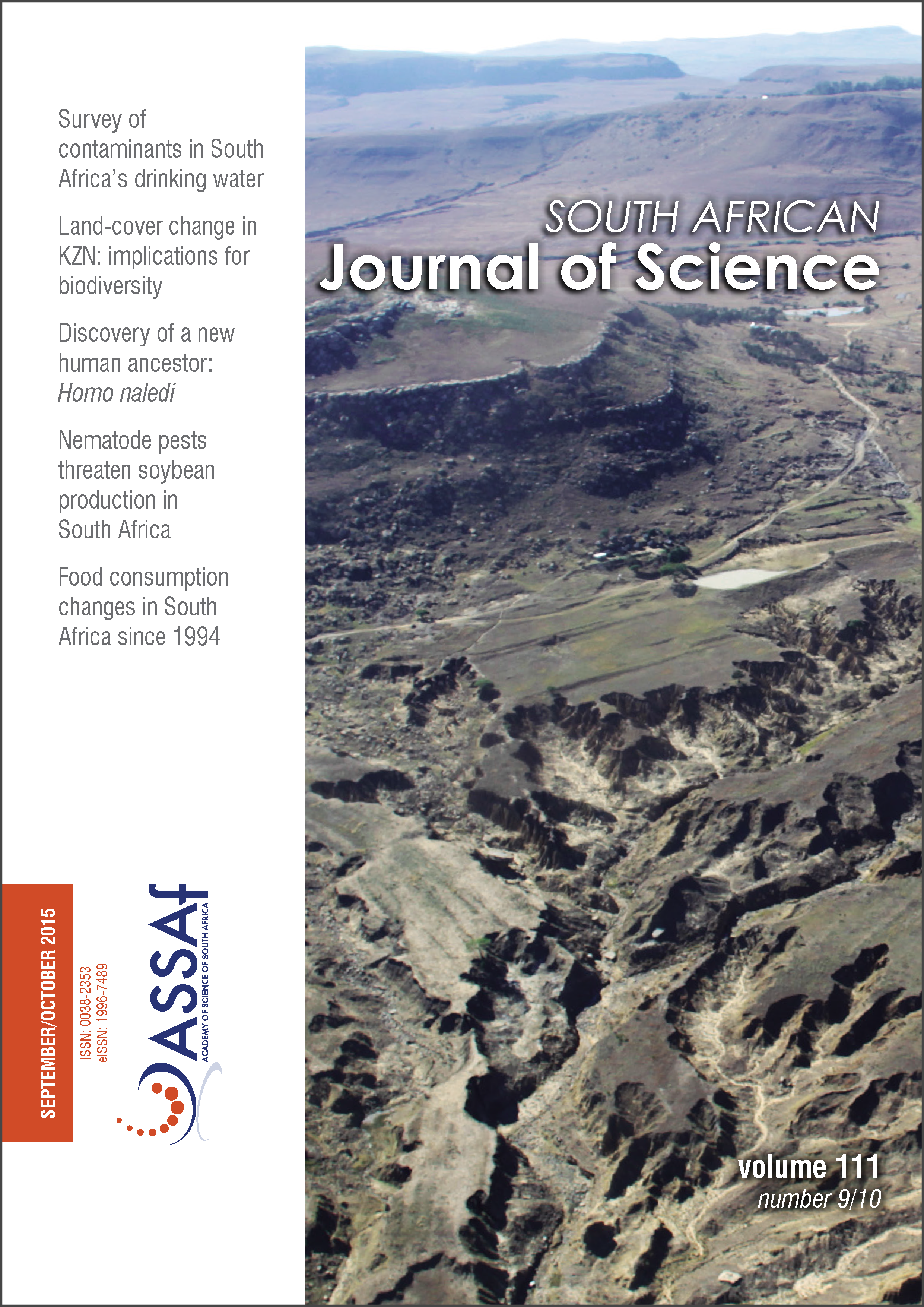Plants, people and health: Three disciplines at work in Namaqualand
DOI:
https://doi.org/10.17159/sajs.2015/20140276Keywords:
interdisciplinarity, scientific knowledge, medicinal plants, natural products chemistry, phenology, indigenous knowledgeAbstract
In Paulshoek, Namaqualand, three research projects focusing on medicinal plants were developed concurrently. The projects were based in the disciplines of anthropology, botany and chemistry. In this paper, we explore how these projects related to one another and describe the conversations that occurred in the process of searching for transdisciplinary knowledge. The projects ostensibly shared a common object of knowledge, but it was through working together that the medicinal plants constituted us as a community of scholars. As our insight into our respective disciplinary relationships with the plants grew, so did our understanding of the limitations of our respective disciplinary positions. The process made possible a ‘reimagination’ of both the object of study and our relationships to it and to one another. The research project, conceptualised in 2009, engaged current debates on indigenous knowledge and its historical erasures, and offered an approach that has potential to produce new knowledges while respecting the integrity of the disciplines. This approach requires a non-competitive attitude to research and one that acknowledges the contributions that can be made by multiple approaches.
Published
Issue
Section
License

All articles are published under a Creative Commons Attribution 4.0 International Licence
Copyright is retained by the authors. Readers are welcome to reproduce, share and adapt the content without permission provided the source is attributed.
Disclaimer: The publisher and editors accept no responsibility for statements made by the authors
How to Cite
- Abstract 966
- PDF 546
- EPUB 176
- XML 228












.png)